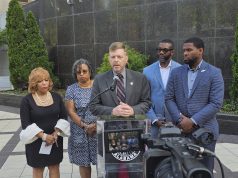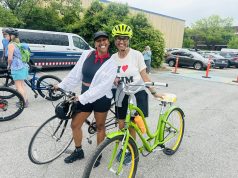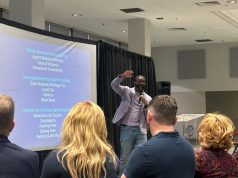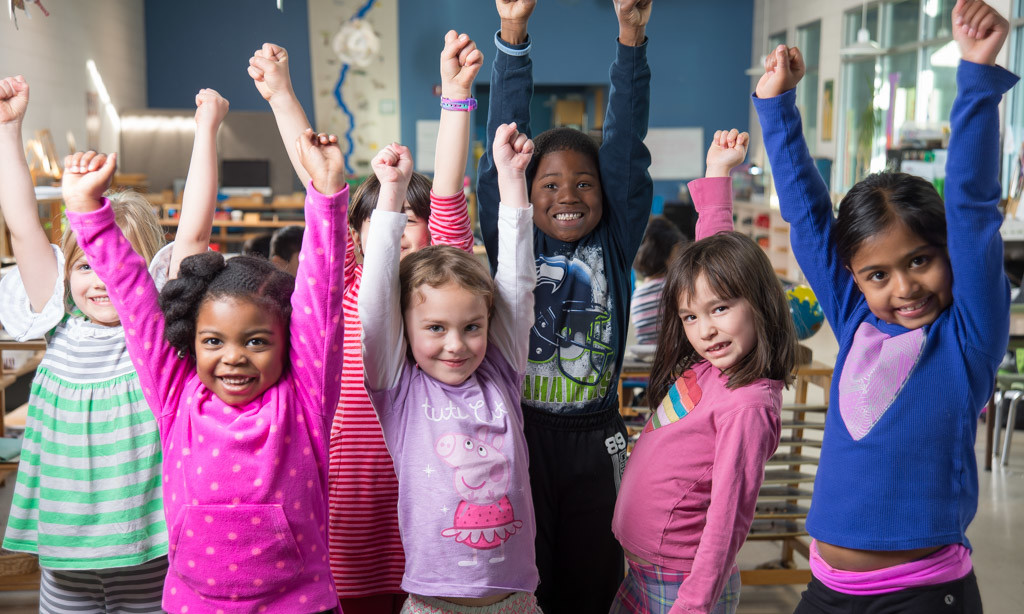
By Ariel Worthy
The Birmingham Times
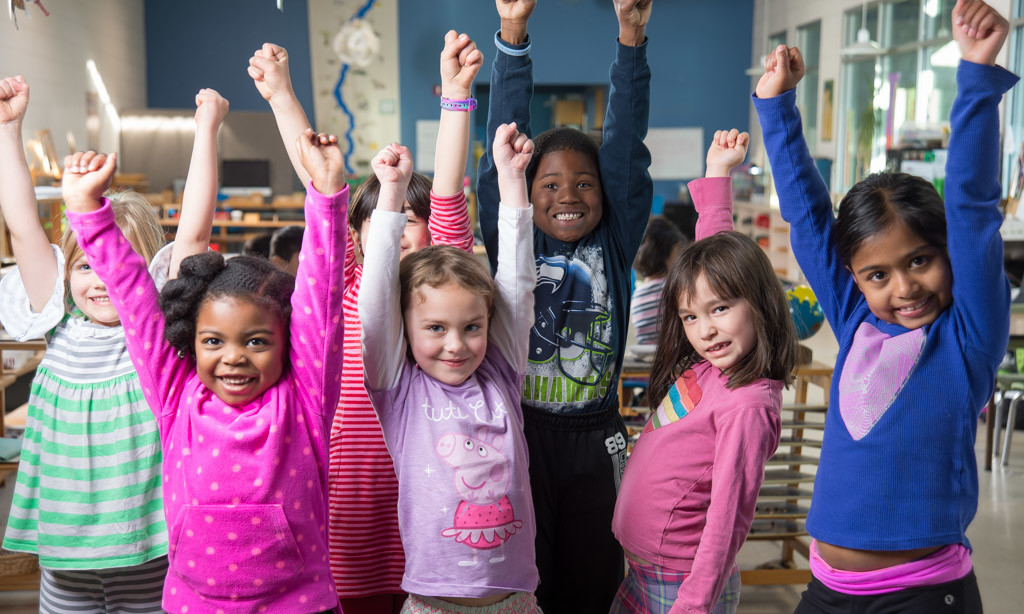
When it comes to giving, Birmingham is a generous community. Look no further than the truckloads of water, canned goods, and clothing collected by metro area residents for victims of the recent floods in Louisiana. Consider the millions of dollars granted by local foundations to assist nonprofits like Birmingham’s Maranathan Academy, a school for at-risk children in East Lake.
Maranathan has been able to operate with the help of the Community Foundation of Greater Birmingham (CFGB), as well as various corporations and churches throughout the city.
“I went to a luncheon at Maranathan recently, and just to hear [educator Donna Dukes] talk about her babies and to see the work they’re doing is incredible,” said Ginger Jefferson, CFGB director of marketing and communications.
Much can be said about the work being done by the CFGB for groups like Maranathan Academy, the Birmingham Education Foundation, and the Breast Cancer Survivorship Initiative, as well as the 3 Parks Initiative that led to the expansion of the Ruffner Mountain Nature Preserve and the creation of Railroad and Red Mountain parks.
Indeed, charitable giving is ingrained in the mission of many Birmingham area corporations.
“We see corporate social responsibility as an opportunity to put our mission to make life better into action,” said Grayson Hall, chairman, president, and CEO of Regions Financial Corp. “It’s how we use, track, and report our resources to create positive change in the lives of our friends and neighbors. Our associates give their time and talent to support our ongoing efforts to promote diversity and inclusion; to respond in times of disaster; and to encourage economic development and sustainability.”
Terry Kellogg, president and CEO of Blue Cross and Blue Shield of Alabama, said, “We use our corporate strengths and resources to have a positive impact on the communities we serve. As a good corporate citizen, we strive to improve the health and well-being of Alabamians by investing in charitable organizations across the state.”
Chris Nanni, who has been the CFGB’s president and CEO since 2014, said, “I am amazed with how generous the greater Birmingham community is. It is an honor for me to work at our ‘community’s foundation’ where donors of all different means can connect their generosity and passion with making a significant difference in our community.”
Charitable Individuals
The CFGB is the oldest and largest community foundation in the state of Alabama, and it ranks among the top 100 nationwide. It works with charitable individuals, families, and businesses and their professional advisors in partnership with nonprofit organizations. And it is funded mostly by individuals, according to CFGB Vice President of Development Erin Stephenson.
“About 98 percent of the money is from individuals,” she said. “We ask people what they are trying to achieve philanthropically in Birmingham, and we try to help them work toward it.”
Last year, the CFGB, which has about $250 million in assets, granted about $18 million to organizations in Birmingham and its surrounding five-county area: Jefferson, Shelby, Walker, St. Clair, and Blount. Since 1959, the group has awarded more than $357 million in grants to the community.
Some recent initiatives have focused on reducing group-related homicides, addressing the needs of the aging population, providing access to mental health care, and supporting workforce development.
Nanni said he is particularly proud of the role the CFGB has played with the Family Justice Center (FJC), a nonprofit division of the district attorney’s office that operates as a resource center for victims of domestic violence and assault. Victims can file reports, receive shelter, get medical assistance, and talk with a prosecutor.
“We’ve been working with them since the beginning,” Nanni said. “In my previous position, I saw the dangers of not having sustainable funding built into those organizations. They would have three years of funding and nothing beyond that.
I think [our grant] really helped strengthen the FJC’s efforts.”
“They were one of our early supporters and one of the first to really catch the vision of the Family Justice Center and not just say ‘It’s a great idea,’” said Allison Dearing, Executive Director of the FJC, “but they also provided the financial support that we needed to move us from a pilot project to full time operations.”
Dearing said the CFGB gave $75,000 over two years: 2016-2017.
“We knew that if we approached them and could get them to buy in that would allow us to leverage additional support from other funders,” Dearing said. “So it was huge when they said, ‘yes we believe in your project, yes we want to support you.’ Honestly that’s when we felt more confident about going to more foundations and asking for their partnership.”
The FJC is an example of Birmingham’s generosity.
The United Way donated a building at 1135 14th Ave. South and “we’ve had some wonderful supporters from the Junior League, Alabama Power Foundation and Verizon,” Dearing said. “We just need extra funds to complete renovation on the building . . . we have our fingers crossed to [be moved in the new building] by the end of the year.”
In another area, the CFGB has secured the funding for the Violence Reduction Initiative, which is designed specifically to reduce homicides in the city, according to Nanni. “We’re also making sure it’s correctly implemented.”
The CFGB advocates for payday-lending reform.
“We’ve had nonprofits address the issues of payday lending, and it has led us to become much more active in advocacy on that,” Jefferson said.
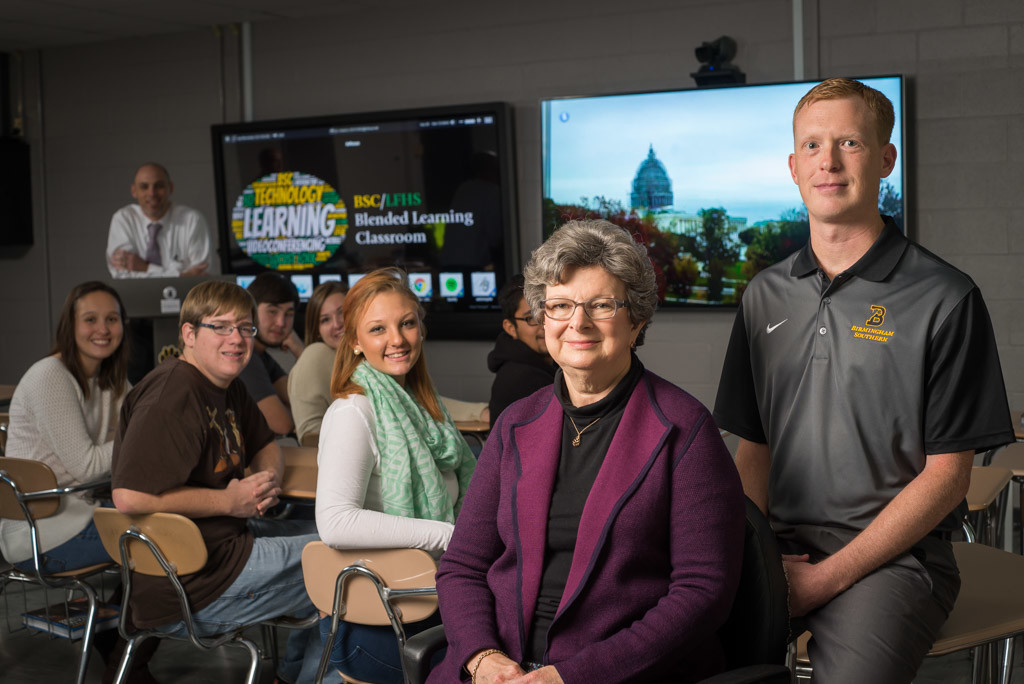
How to Donate
There are a several ways individuals can donate to the CFGB. The most common is via the Donor Advised Fund (DAF), which is “like having your own private foundation,” Nanni said.
An individual can set up money with the CFGB and then advise on where the money will go.
The DAF is also tax exempt, like all other donations to the CFGB. And to make donation easier, all aspects of the process are handled in-house: accounting, advising, keeping track of donations and tax-exemption forms.
“These are large amounts of money to keep up with,” Stephenson said. “One of the things I hear all the time is how easy we make giving.”
Another way the CFGB supports donors is through its Results Framework. An individual can leave part of their estate to the CFGB, and it will go into an unrestricted fund. This gives the CFGB the opportunity to put the money toward an organization that is highlighted during one of its two yearly cycles: spring and fall. During cycle 1, the CFGB highlights education and healthy living. During cycle 2, it highlights sustainable living and economically secure organizations. Organizations that fall under those categories receive grants from the fund.
Other CFGB funds are Field of Interest, which enable a donor to identify an area of interest to support without requiring them to specify any organization; Scholarship, which go to a broad range of students; Designated, which are specific donations that can be used wherever and whenever the donor chooses; and Agency Endowment, which allow nonprofits to start and build an endowment using the CFGB’s services.
“We like to think of ourselves as smart philanthropy, but our sweet spot involves those people who want to grow in their philanthropy,” Nanni said. “It may start out as people wanting a tax break, but once they get involved they want to see how their money can make a difference in the community.”
For more information about the Community Foundation of Greater Birmingham call 205-327-3800 or send an email to info@foundationbirmingham.org.


